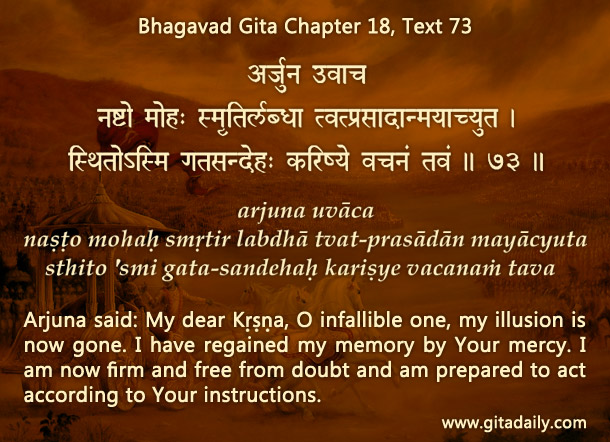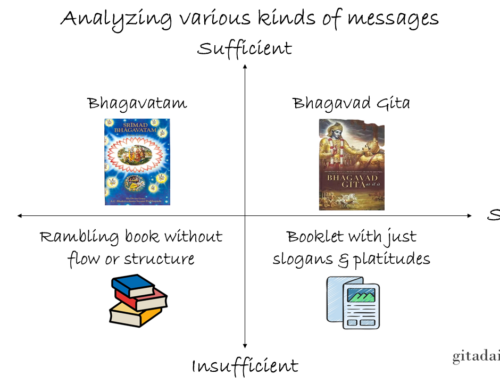The Bhagavad-gita concludes with Arjuna declaring that he will do Krishna’s will (18.73). This conclusion also reflects the Gita’s universal guideline: our human will is meant to be aligned with the divine will. That guideline begs the question: how can we know God’s will?
Do we need some mystical revelation or paranormal vision? No. Though these can be ways by which God manifests his will in exceptional situations, he usually manifests his will through the faculty for moral discernment that he has given all of us – especially when that faculty is grounded in and guided by scriptural study.
Significantly, this is the way Arjuna too comes to know Krishna’s will in the Gita. It is his acute moral faculty that causes Arjuna to hesitate before the fratricidal Kurukshetra war and to raise the Gita’s seminal question (02.07) : what is dharma, the right thing to do? In answering this question, Krishna doesn’t simply reveal his will; he adopts a process of moral reasoning based on a philosophical analysis of the nature of reality. As the Gita flows toward its textual conclusion, its reasoning leads to the natural conclusion that we should harmonize with the divine will (18.62).
By contemplating how Krishna imparts wisdom to Arjuna, we can infer that he is modeling the process of moral reasoning that we all need to adopt when he is not accessible to us. In fact, Srimad-Bhagavatam (1.15) describes how Arjuna himself adopts a similar process. When Krishna departs from the world, a shattered Arjuna has to decide what to do next. By immersing himself in remembering Krishna and especially Krishna’s Gita message, Arjuna finds his way ahead becoming clearer (1.15.27).
If we too study the Gita regularly, its wisdom will sharpen and strengthen our moral faculty, thereby making it easier for us to discern and do Krishna’s will amid our life’s moral challenges.
One-sentence summary:
The Gita demonstrates how our moral faculty can be used and trained to discern God’s will.
Think it over:
- How does God reveal his will in extraordinary and ordinary situations?
- How is Krishna’s will revealed in the Gita?
- How does Arjuna discern Krishna’s will after Krishna has departed from the world?
***
18.73: Arjuna said: My dear Krishna, O infallible one, my illusion is now gone. I have regained my memory by Your mercy. I am now firm and free from doubt and am prepared to act according to Your instructions.
To know more about this verse, please click on the image





Abide by God’s will to avoid miseries